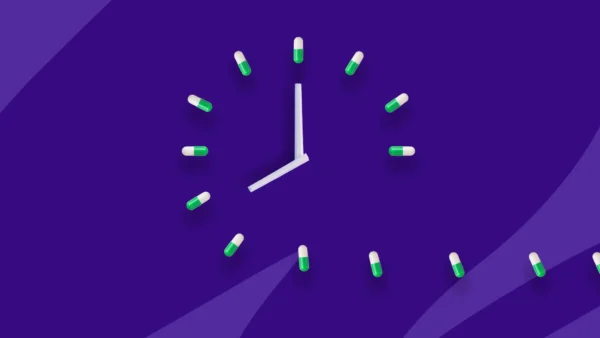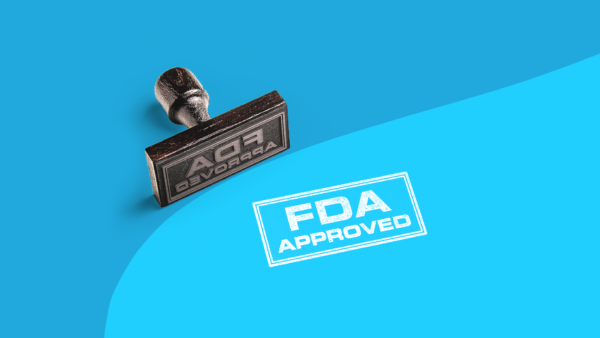Muscle relaxers are sometimes used to manage muscle aches, tightness, and pain from various medical conditions such as multiple sclerosis, spinal cord injuries, or spinal cord disorders. They are very popular when treating acute skeletal muscle injuries, as muscle relaxants are usually a short-term solution. Baclofen is under the antispasmodic agent category—skeletal muscle relaxant—that works on the nerves in the spinal cord. It helps reduce the amount or severity of muscle spasms associated with malfunctioning spinal cord nerves. Baclofen is the generic version, whereas Lioresal, Lioresal Intrathecal, Gablofen, FIRST Baclofen, Ozobax, Fleqsuvy, and Lyvispah are the brand names available.
Although baclofen can be quite effective in managing skeletal muscle pain, there are several side effects associated with its use. One of the more serious concerns is excessive drowsiness or sedation. Other common side effects include weakness, fatigue, dizziness, dry mouth, low blood pressure, itchiness, headache, stomachache, and anxiety. Developing side effects while using baclofen may increase or worsen when taking other drugs, supplements, or ingesting certain foods. It is important to know if any of your current medications, supplements, or diet may cause potential adverse effects or impact the effectiveness of your baclofen prescription.
Key takeaways:
- Do not use baclofen with narcotic or benzodiazepine medications.This combination can cause serious adverse reactions. Due to both medications impacting brain activity, shallow breathing may occur, which can potentially cause death. This is the most dangerous baclofen interaction to be aware of.
- Serious adverse effects from baclofen interactions include central nervous system (CNS) depression, respiratory depression, lack of balance and coordination, loss of consciousness, seizures, hallucinations, depression, psychosis, spasticity, abnormal reflexes, and withdrawal symptoms.
- Less severe baclofen interactions to be aware of involve using sleep medications (both approved and used off-label), other muscle relaxers, and barbiturates. They are associated with excessive sleeping and drowsiness.
- If there is suspicion of a baclofen interaction, you should contact your healthcare professional immediately.
Baclofen-drug interactions
Both prescription and over-the-counter medications that slow down the central nervous system may interfere with baclofen. These medications are prone to cause drowsiness just as baclofen does.
Opioids
Examples of common opioids to avoid while taking baclofen:
The combination of narcotic pain or cough medications with baclofen is not recommended. Both medications cause CNS depression which may lead to respiratory depression, unconsciousness, or even death. Increased dizziness, drowsiness, problems with concentration, impairment in judgment, and reduced reaction speed and motor coordination may occur when taking narcotics and baclofen. If any of these symptoms occur, you should seek medical attention immediately.
It is important to make your healthcare provider aware if you are taking any of these medications due to potential severe adverse reactions. Your healthcare provider may recommend not to take these medications together or suggest a lower dose to prevent complications. Additionally, close monitoring may be required if there are no other alternatives available, and this combination is only needed for a short period of time. Suppose you must take opioids but require additional pain management for acute skeletal muscle conditions. In that case, your healthcare provider may suggest an alternative to baclofen, such as lidocaine patches, off-label use of Botox, or nonprescription analgesics such as Motrin and Tylenol.
Benzodiazepines
Common benzodiazepines to avoid while taking baclofen:
Adding benzodiazepines while taking baclofen is just as risky as taking narcotics. Benzodiazepines pose the same risk as narcotics as they slow down brain activity. Since baclofen does the same, this combination of drugs increases the chances of sedation, shallow breathing, and death. The potential side effects from using baclofen increase when adding a benzodiazepine. If, at any time, slower breathing, drowsiness, or confusion occurs, seek medical attention right away.
Inform your doctor if you are on a benzodiazepine. They may opt to provide you with an alternative to baclofen or give you a lower dose. If the decision is made to give you baclofen with your benzodiazepine, close monitoring is required.
Sleep medications
Examples of common sleeping aids to avoid while taking baclofen:
Medications prescribed to aid with insomnia should be avoided with baclofen. This includes drugs that may cause sleepiness but are not actually prescribed for insomnia (i.e. antihistamines). These medications with baclofen cause excessive sleepiness and impact concentration and coordination. Driving or handling heavy machinery should be avoided with this drug combination as it can impair alertness.
Your healthcare provider may not recommend baclofen be added if you need sleeping aids. Inform them if you are taking this type of medication, as they may want you to choose only one at a time.
Barbiturates
Barbiturates to avoid while taking baclofen:
Barbiturates—frequently used for insomnia, anxiety, and epilepsy—cause drowsiness as it is a CNS depressant. Due to the popularity and belief in superior safety, benzodiazepines are now used more frequently than barbiturates. Because baclofen also increases the possibility of drowsiness, barbiturates, and baclofen are not recommended to be used together. This combination may cause excessive sleepiness, confusion, or decreased breathing. If this occurs, contact your doctor about these adverse reactions. If you need a barbiturate, your healthcare provider may choose to wean you off baclofen gradually. They may also ask you to monitor your symptoms closely with the current regimen or put you on a lower dose.
Other muscle relaxants
Other muscle relaxers to avoid while taking baclofen:
- Carisoprodol
- Chlorzoxazone
- Cyclobenzaprine
- Dantrolene
- Methocarbamol
- Metaxalone
- Orphenadrine
- Tizanidine
Many different muscle relaxants on the market may not work the same as baclofen. All work to relax muscle tone. They have similar side effects to baclofen, such as drowsiness, dizziness, headache, and tiredness. If combined with baclofen, these symptoms may escalate. If you are unsure if you are already taking a muscle relaxant, be sure to provide the names of all medications and supplements to your doctor. They will be able to determine if you are already taking something to help with your muscular pain. One drug’s dose may be increased versus adding an additional muscle relaxant. An alternative may be given if there is no relief with the current muscle relaxer that you may be taking.
Baclofen-food interactions
Luckily there are no known food interactions associated with the use of baclofen. It is recommended that staying hydrated and having drinks with electrolytes are helpful in treating and preventing muscle spasms. A well-balanced diet with calcium, potassium, and magnesium is also shown to prevent muscle cramps.
Other baclofen interactions
Although prescription medications are most commonly known to cause interactions with baclofen, other things need to be considered as well. Questions such as whether can you drink alcohol, continue with your daily vitamin supplements, or do any particular illnesses pose a risk while taking baclofen should be considered. This section will further highlight these concerns.
Baclofen and alcohol
Alcohol should never be taken while on baclofen. The two can interact with one another, causing severe drowsiness, confusion, headache, slurred speech, decreased memory, weakness, and slowed breathing due to both causing CNS depression. The mixture of alcohol and baclofen puts you at risk for shallow breathing that may result in death. Please discuss your alcohol intake or future plans with your healthcare provider, as they can provide guidance on how much alcohol, if any, can be used while on baclofen.
Baclofen and disease/CBD/illicit drugs/vitamins/herbal supplements/etc.
Baclofen may not be the right choice for everyone. People who suffer from epilepsy, mental health conditions, stomach ulcers, kidney disease, history of stroke, Parkinson’s, diabetes, or those being treated for high blood pressure may need to consider a different option other than baclofen. Some of the symptoms associated with using baclofen may be exacerbated in those with these conditions. Also, people who are pregnant or breastfeeding should not take baclofen.
Mental alertness and coordination may be impaired when taking baclofen with cannabidiol (CBD) or illicit drugs. If you have difficulty staying awake or experience shallow breathing while on baclofen, cannabis, and/or illicit drugs, you should seek medical attention as this may be a life-threatening interaction. Be sure to let your healthcare provider know if you use CBD or illicit drugs, as they may recommend you discontinue this until your muscle pain has improved and there is no longer any need for baclofen.
Currently, there is no known research confirming any interactions between baclofen, vitamins, and herbal supplements. Although there are no known reactions, you should still disclose if you take any of these with your doctor.
How to minimize baclofen interactions
The best way to minimize interactions with other prescription drugs while taking baclofen is to know what medications or supplements you are taking. You may not be aware of any interactions or serious side effects from various medications. Still, your doctor or pharmacist may be able to catch a potential problem before it starts. If you take several medications or have a hard time remembering what you are taking, it is best to keep an up-to-date list for your records.
Before starting any new medications, be sure you are aware of any of the potential side effects that may occur with the use of the medication. If you are unsure that you are having a reaction to your medication, contact your doctor as they will have more insight and can confirm.
When to talk to a healthcare provider about baclofen interactions
While taking baclofen, if you notice any symptoms such as excessive drowsiness, trouble breathing, dizziness, weakness, or poor coordination, you should contact your healthcare provider for medical advice. If you notice any new symptoms that may not be listed, you should still reach out to your healthcare provider, as this may very well be due to your new baclofen prescription. Never discontinue baclofen abruptly, as this may lead to unwanted withdrawal symptoms. Your healthcare professional will be able to help you safely discontinue the medication or provide alternatives if needed. Regardless of what medications you decide to use for muscle aches and pain, you can find huge savings when you use SingeCare’s prescription discount card.











